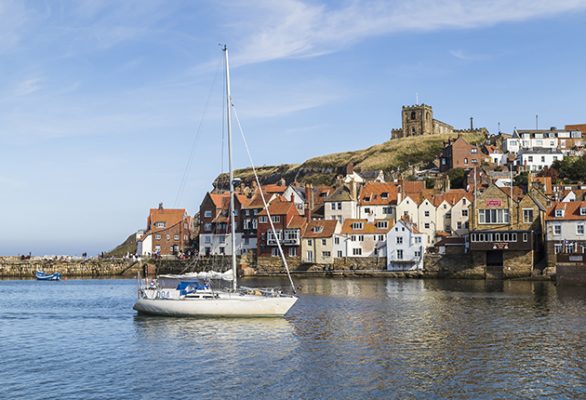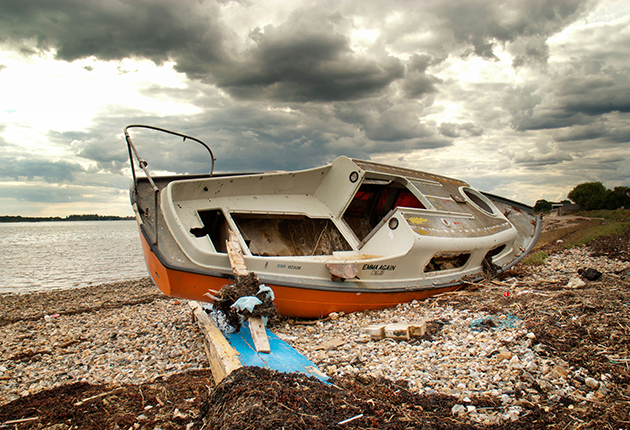The RYA has published its plans for zero carbon recreational boating by 2050. It has consulted academics, government advisers and manufacturers
The RYA has unveiled its vision to make the UK’s recreational boating sector zero carbon by 2050.
The association consulted academics, government advisers and manufacturers before publishing its Pathways to Zero document.
Amongst the strategies announced include support for a 50% reduction in carbon emissions from boat engines by 2030 and zero carbon by 2050.
Much of the focus of decarbonising the propulsion of recreational boats is on new build, where ‘exciting and innovative technologies can be introduced and designs optimised for their use’, including a move to electric drive engines with a mix of energy stores, mostly battery and hydrogen fuel cells.
But the RYA admits that the ‘biggest challenge’ will be the existing boat fleet, as well as the wide variety of vessels, with many differing requirements for both power and range.

The Arcona 380Z is a standard production yacht that has been adapted for electric propulsion. Note the increased solar panel surface area with soft panels bonded to the sails. Credit: Jukka Pakainen
‘This extensive scope and variety mean that there is no single solution that meets all user needs,’ it states.
The association also acknowledges that understanding how boats are used is key to informing the uptake of new, clean technologies.
In the interim, the RYA will encourage the use of the biofuel, Hydrotreated Vegetable Oil (HVO) until 2030 for yachts, small non-planing boats and vessels on inland waterways before a move to electric drive engines. It envisages the use of hydrogen fuel cells for extended range beyond 2030.
For small high speed craft, the transition to battery electric outboards should be ‘straightforward’, with potentially the use of hydrogen combustion engines from 2030 onwards for longer range and high power requirements.
HVO and other biofuels are also recommended for large and long range powered vessels in the short term, with the use of hydrogen fuel cells with electric drive or hybrid hydrogen combustion engines with battery storage as a longer term solution.

Oceanvolt’s electric drives feature a clean display that can tell you exactly how much electricity the system is consuming under power or generating under sail. Credit: Richard Langdon/Ocean Images
Changes are also being proposed to the RYA’s sailing events and its operations.
It wants to achieve zero greenhouse gas emissions from its own facilities by 2030.
Actions include encouraging the use of public transport but banning all internal flights within Great Britain, replacing all lights with LEDs at RYA HQ and RYA Portland House, and continuing to use technology for online meetings.
The association plans to change its focus of its sailing event series, with more regional activities feeding occasional national events and choosing locations to maximise the use of public transport, as well as other measures.
Continues below…
Electric yacht: What are the options for going electric?
Electric and hybrid yachts are growing in popularity; we outline the current options for those making the switch
Renewable energy afloat: the latest tech
Sam Fortescue examines how renewable energy afloat is benefitting from technical developments in other sectors
Would you switch to electric propulsion?
Would you make the switch? We ask two sailors who have looked at how the real-world numbers stack up on…
What’s the future for derelict GRP boats?
With 9,000 GRP boats abandoned in Europe each year, finding disposal solutions isn't easy. Could new technologies be the answer?…
To help the British Sailing Team achieve a 50% reduction in emissions and net zero by 2030, the RYA will review travel methods to European training destinations to reduce air travel by 25% by 2030, introduce electric propulsion for coach and safety boats by 2030 and improve boat maintenance to reduce the need for new boats, amongst other measures.
The RYA will also declare a climate emergency and use its channels to promote their carbon reduction ambitions.
Commenting on the launch of the Pathways to Zero report, Phil Horton, RYA Environment and Sustainability Manager, said: ‘The development of this report follows wide research across the sector, analysis of sustainability forecasts, as well as speaking with RYA members and marine businesses.

The RYA wants the British Sailing Team to achieve a 50% reduction in emissions and net zero by 2030. Credit: Getty
‘In addition to addressing our own operational impacts, we believe that it is essential to the safeguarding of our sport that the RYA contributes to mitigating the long-term environmental impacts of recreational boating. Addressing these concerns will have many benefits for boaters that go beyond carbon emission reductions, such as reduced noise, better manoeuvrability and response, reduced maintenance costs, and zero pollution,’ he continued.
The report outlines the key areas where we have identified a need for change, many of those actions included will be relatively easy fixes. However, other actions will require investment, whether that be in time or funding.
‘The RYA interacts directly and indirectly with an estimated 250,000 recreational boaters each year, therefore one of our objectives is for the changes in behaviour occurring within the RYA to be shared and adopted by those boaters and the wider boating community,’ he added.
Read the full Pathways to Zero: The RYA’s Vision for a Zero Carbon Recreational Boating Sector by 2050 report here.






